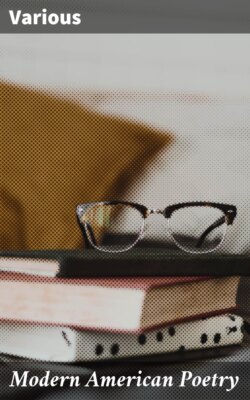Читать книгу Modern American Poetry - Various - Страница 44
На сайте Литреса книга снята с продажи.
Eugene Field
ОглавлениеTable of Contents
Although born (September 3, 1850) in St. Louis, Missouri, Eugene Field belongs to the literature of the far West. Colorado and the Rocky Mountain region claimed him as their own and Field never repudiated the allegiance; he even called most of his poetry “Western Verse.”
Field’s area of education embraced New England, Missouri, and what European territory he could cover in six months. At twenty-three he became a reporter on the St. Louis Evening Journal, the rest of his life being given, with a dogged devotion, to journalism. Driven by the demands of his unique daily columns (those on the Denver Tribune [1881–1883] and the Chicago Daily News [1883–1895] were widely copied), Field first capitalized and then standardized his high spirits, his erudition, his whimsicality, his fondness for children. He wrote so often with his tongue in his cheek that it is difficult to say where true sentiment stops and an exaggerated sentimentality begins. “Field,” says Fred Lewis Pattee, in his detailed study of American Literature Since 1870, “more than any other writer of the period, illustrates the way the old type of literary scholar was to be modified and changed by the newspaper. Every scrap of Field’s voluminous product was written for immediate newspaper consumption. He patronized not at all the literary magazines, he wrote his books not at all with book intent—he made them up from newspaper fragments. … He was a pioneer in a peculiar province: he stands for the journalization of literature, a process that, if carried to its logical extreme, will make of the man of letters a mere newspaper reporter.”
Though Field still may be overrated in some quarters, there is little doubt that certain of his child lyrics, his homely philosophic ballads (in the vein which Harte and Riley popularized) and his brilliant burlesques will occupy a niche in American letters. Readers of all tastes will find much to surprise and delight them in A Little Book of Western Verse (1889), With Trumpet and Drum (1892), A Second Book of Verse (1893) and those remarkable versions (and perversions) of Horace, Echoes from the Sabine Farm (1893) written in collaboration with his equally adroit brother, Roswell M. Field. A complete one-volume edition of his verse was issued in 1910.
Field died in Chicago, Illinois, November 4, 1895.
